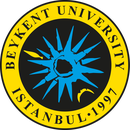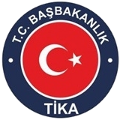
International Conference on Eurasian Economies
17-18 September 2013 – St. Petersburg, RUSSIA
Paper detail
Paper ID : 773
Status : Paper published
Language : Turkish
Topic : International Trade and Globalization
Presenter: Mr. Sezai Ata
Session : 6B Uluslararası Ticaret II
Turkey’s Trade with Neigbor Countries: A Gravity Model Analysis
Türkiye ile Komşuları Arasındaki Ticaret Potansiyeli: Çekim Modeli Çerçevesinde Bir İnceleme
- Mr. Sezai Ata (Presidency of Republic of Turkey - Presidency of Strategy and Budget, Türkiye)
Abstract
With the ever-increasing level of integration in world economy, neighborhood relations become much more important for two-fold reasons. Firstly, neighbor countries are most important trade partners in general and secondly they form a bridge with the other countries. So, while good relations with neigbors have positive externalities for the trade with other countries, bad relations with neigbors mean reduced trade with other countries of a specific region. The main purpose of this study is to analyze Turkey's export potential with the neighbor countries with the help of the gravity model. For this purpose, first a gravity model has been set up using panel data which consists of bilateral data for 68 countries for the period 1980-2009, and then Turkey’s exports potential to 10 neigbor countries is analyzed. One important finding of the study is that Turkey’s exports to neighbor countries in general is below potential and there is a further room for increasing exports. While the short distance, one of the two most important indicator of trade in a gravity model (the other is GDP), is one of the main drivers of high trade among countries, its full effect depends on the geographical conditons of two countries. Our analysis shows that, high levels of untapped export potential exists for the majority of neighboring countries.
JEL codes: F17
Ata, Sezai (2013). "Turkey’s Trade with Neigbor Countries: A Gravity Model Analysis" in Proceedings of International Conference of Eurasian Economies 2013, pp.500-509, St. Petersburg, RUSSIA.
DOI: https://doi.org/10.36880/C04.00773
Session 6B: Uluslararası Ticaret II


